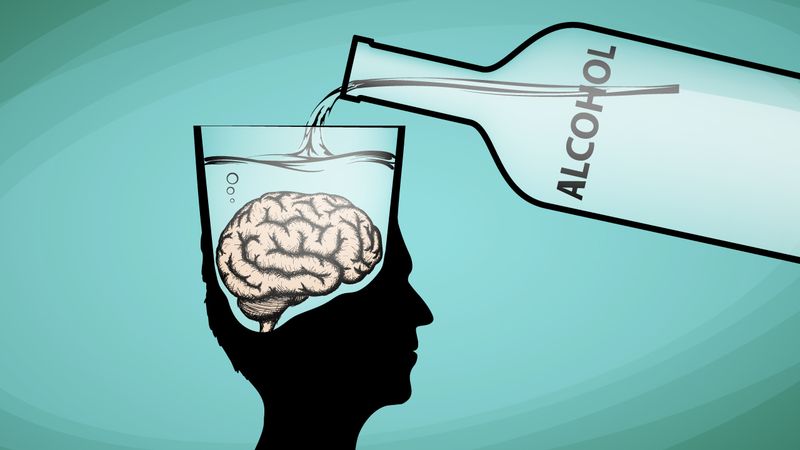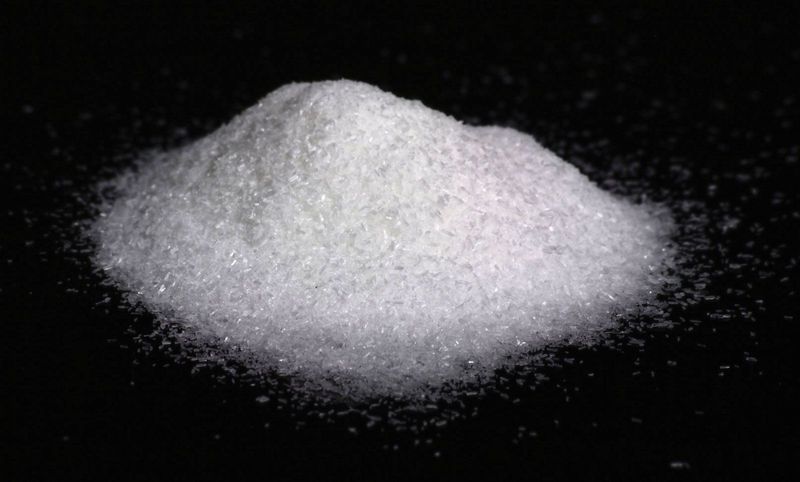Our daily diet can influence many aspects of our health, including memory. While some foods can boost brain function, others might be detrimental. Below, we explore 18 common foods that could be impacting your memory in unexpected ways.
Sugary Drinks

Sugary drinks are a favorite for many, offering a burst of sweetness and energy. However, research has shown that high sugar intake can lead to memory problems. Consuming sugary beverages can increase the risk of cognitive decline and reduce brain volume.
Limiting these drinks may help preserve memory and other brain functions. Have you ever considered swapping soda for water or unsweetened tea? Your brain might thank you for it.
It’s fascinating how a simple change in your beverage can contribute to better memory health.
Processed Meats

Processed meats like bacon and sausages are tasty, but consuming them often can be problematic for the brain. These foods typically contain high levels of nitrates and other preservatives. Such additives may cause inflammation, affecting cognitive functions.
Reducing processed meat intake can be a step towards preserving memory. Perhaps it’s time to explore more natural protein sources in your meals.
Did you know? Some studies suggest that diets high in processed meats may even be linked to Alzheimer’s disease.
Refined Carbs

Refined carbohydrates, such as white bread and pastries, can spike your blood sugar levels. These quick energy sources might offer convenience but can lead to memory impairment over time.
Switching to whole grains could support better brain health. Ever thought about the impact of your breakfast choices on memory?
Interestingly, whole grains contain essential nutrients that help maintain cognitive function, making them a smarter choice for brain health.
Fried Foods

Fried foods are often a comfort favorite, yet frequent consumption can be harmful to memory. Frying food typically involves unhealthy fats that can lead to inflammation and oxidative stress in the brain.
Choosing healthier cooking methods might enhance cognitive function. Imagine swapping fried chicken for a grilled version – it could be both delicious and brain-friendly.
Fascinatingly, cultures with low fried food intake often report better cognitive health outcomes.
Artificial Sweeteners

Artificial sweeteners are marketed as healthier alternatives to sugar, but they may pose risks to memory. Some studies have linked them to cognitive dysfunction and mood changes. Are sweeteners a staple in your daily diet?
Reducing their use could safeguard your brain health. It might be worth considering natural sweeteners like honey or maple syrup.
Curiously, some cultures embrace natural sweetness and enjoy lower rates of cognitive decline compared to those with high artificial sweetener consumption.
Fast Food

Fast food is convenient and appealing, yet its regular consumption can negatively affect memory. High in unhealthy fats and sugars, it may lead to brain inflammation and impaired cognitive function.
Moderating fast food intake could be beneficial for memory. Imagine creating a healthy version of your favorite fast-food meal at home!
Interestingly, the rise of fast food culture has paralleled increases in cognitive health issues, highlighting the need for mindful eating choices.
Alcohol

Alcohol is often part of social gatherings, yet excessive consumption can harm memory. It has been associated with brain shrinkage and memory loss. Could moderation be the key to preserving memory?
Consider enjoying a drink responsibly to maintain cognitive health. How often do we think about the long-term effects of a casual drink?
Remarkably, some cultures that enjoy alcohol in moderation report healthier cognitive aging compared to those with higher consumption levels.
Trans Fats

Trans fats, often found in margarine and baked goods, can be damaging to brain health. Known to cause inflammation, they may contribute to memory loss.
Switching to healthier fats could be a step towards better cognitive function. Perhaps it’s time to reconsider the role of trans fats in your diet.
Did you know? Countries that have banned trans fats report significant improvements in public health, including cognitive well-being.
Aspartame

Aspartame, a common artificial sweetener in diet sodas, has been controversial regarding its health effects. Some research suggests it might impair memory by altering neurotransmitter function.
Reducing aspartame intake could protect cognitive health. Do you often choose diet drinks over regular ones? It might be worth reconsidering.
Interestingly, the ongoing debate about aspartame continues to fuel scientific exploration into its long-term effects on memory and overall health.
Caffeine

Caffeine, a favorite stimulant, can sharpen alertness, but excessive consumption might impact memory negatively. High amounts can lead to anxiety and sleep disturbances, affecting cognitive performance.
Balancing caffeine intake could support better brain health. How does your coffee habit influence your day-to-day memory?
Curiously, some cultures that limit caffeine intake report better cognitive health, suggesting moderation might be key to enjoying its benefits without drawbacks.
Monosodium Glutamate (MSG)

Monosodium Glutamate, or MSG, enhances flavor but has been flagged for potential cognitive risks. Some studies suggest it might lead to brain cell damage and memory issues.
Reducing MSG consumption could be advantageous for brain health. Have you ever checked food labels for MSG content?
Interestingly, while some cuisines rely heavily on MSG, others have shifted to natural flavor enhancers for better health outcomes.
Saturated Fats

Saturated fats, found in red meat and butter, can be detrimental to memory when consumed in excess. They may lead to plaque buildup in brain vessels, impacting cognitive functions.
Considering leaner protein options might aid in preserving memory. How often do you incorporate plant-based meals into your diet?
Remarkably, populations with low saturated fat intake often report longevity and better cognitive health, emphasizing balanced dietary choices.
Gluten

Gluten, a protein in wheat, barley, and rye, might affect memory in susceptible individuals, like those with celiac disease. Some experience brain fog and memory issues when consuming gluten.
Exploring gluten-free alternatives could benefit those with sensitivities. Have you ever considered the role gluten plays in your mental clarity?
Curiously, gluten-free diets have gained popularity, not just for digestive health but also for potential cognitive benefits.
High-Fructose Corn Syrup

High-Fructose Corn Syrup, prevalent in processed foods, may negatively impact memory. It can cause insulin resistance, affecting brain function.
Reducing intake of sweeteners could enhance cognitive health. Do you read labels to avoid high-fructose corn syrup?
Interestingly, the rise in its use has coincided with increased cognitive health concerns, prompting calls for more natural sweetener options in diets.
Soy Sauce

Soy sauce, a staple in many dishes, contains high sodium levels, which might affect blood pressure and, consequently, cognitive health.
Moderating soy sauce use might benefit memory. Have you considered low-sodium alternatives for your meals?
Fascinatingly, some traditional diets incorporate soy sauce sparingly, aligning with lower incidences of cognitive decline, suggesting mindful consumption is key.
Energy Drinks

Energy drinks promise a quick pick-me-up but may contribute to memory problems. High caffeine and sugar content can lead to anxiety and affect cognitive performance.
Limiting energy drink consumption could be advantageous for brain health. Have you ever thought about how often you rely on these boosts?
Interestingly, the growing trend of energy drink consumption has sparked discussions on their long-term effects on health, including memory.
Cheese

Cheese is loved for its rich flavors, but some varieties are high in saturated fats and sodium, possibly affecting memory. Regular consumption might lead to health issues impacting cognitive function.
Exploring low-fat cheese options could support brain health. Have you tried incorporating different cheese types into your diet?
Interestingly, cultures that consume cheese in moderation report better cognitive health, highlighting the balance between enjoyment and health.
Ice Cream

Ice cream, a delightful treat, is high in sugar and unhealthy fats. These ingredients can lead to inflammation and memory impairment when enjoyed frequently.
Opting for healthier versions or limiting intake might preserve cognitive health. How do you balance indulgence with nutritional choices?
Remarkably, some studies indicate that moderating dessert consumption aligns with better cognitive outcomes, suggesting mindful enjoyment of sweets is beneficial.
Leave a comment